Lori S. White underwent intensive vetting before she was named DePauw University’s 21st president in March, but her former boss thinks “the DePauw community doesn’t even know yet how lucky it is.
“Lori White is a compelling leader in every respect,” said Holden Thorp, who was her boss when he was provost and executive vice chancellor for academic affairs at Washington University. She was WashU’s vice chancellor for student affairs for five years before assuming the DePauw presidency July 1.
“She is extremely knowledgeable about higher education; she is a very experienced manager; and she can rally people around her better than anyone I have ever worked with,” said Thorp, now editor in chief of the Science family of journals. “She is about to set DePauw on fire. The students and alumni will be enthused like they never have been before. Get ready for record crowds at your events.”
Two stories about White – one personal, one professional – provide more insight into DePauw’s new president.
Story #1
It was 1995, and White had traveled for her doctoral work from Stanford University in California to Dartmouth College in New Hampshire. She was having dinner with friends, when Tony Tillman, a colleague of one of them, spotted them through the restaurant window. Too shy to step inside, he later asked their mutual friend if White would share a phone number. She acceded, they had a pleasant phone chat and, when she was in New York City several months later, they “spent a nice day together and I thought he was quite a nice guy.”
Here, White explained: “The other thing you should know about me is I’m very focused. Focus is one of my strengths, so when I decide there’s a goal in mind, I’m going to put all of my attention on achieving that particular goal, whatever that might be. The goal was to be complete with my dissertation, my graduate work, by 1995 because, in 1991, I had bought a license plate for my car that said ‘PHD 1995.’ So come 1995, I was determined to finish. …
“I couldn’t imagine how I could date somebody who lived all the way across the country when I was trying to finish my dissertation. This was before email and FaceTime and all the ways with which now we keep in touch with people. So we lost touch.”
White met her goal that year and secured her Ph.D. in education administration and policy analysis, with an emphasis in higher education. A decade later, she and Tillman reconnected, though he had by then moved to Washington D.C. and she to Los Angeles. They forged a two-year, long-distance relationship. Both eventually went to work for Southern Methodist University and, nine years ago, they were married.
I’m very focused. Focus is one of my strengths, so when I decide there’s a goal in mind, I’m going to put all of my attention on achieving that particular goal.– Dr. Lori White
Story #2
In April 2018 the student newspaper at WashU published the latest of several “gut-wrenching” op eds – White’s description – written by students who reported that they had been sexually assaulted and found little sympathy or justice in the reporting process required by Title IX, a federal law that prohibits discrimination on the basis of sex.
A day later, the newspaper published an op ed by White in which she revealed that she too had been a victim of sexual misconduct.
“I was inspired by our students and their bravery to tell their own stories, and this also was happening against the backdrop of the emerging ‘Me Too’ movement, where not only were our students coming forward to tell their stories, but other women were coming forward, much more openly, to tell their stories,” she said. “And I thought, I have a story to tell also. Why am I afraid to tell my own story?”
She consulted with several colleagues who encouraged her to write the op ed. “Students often see the administration as this kind of nameless, faceless blob of people who make decisions,” she said. “I wanted them to also understand that there were women on the campus who may have also experienced what the students were, sadly, experiencing and I wanted students to know that we stood in solidarity and empathy with them, and that we were human beings also.”
Soon thereafter, students – led by Title Mine, the self-styled “trauma-informed, survivor-centered activist movement” – staged a protest and, several weeks later, issued several demands.
White went to the university’s chancellor – equivalent to DePauw’s president – and volunteered to lead the school’s response, starting with formation of a working group of people whose jobs touched on some aspect of Title IX. A week later, White and the director of the Relationship and Sexual Violence Prevention Center met with the Title Mine leaders.
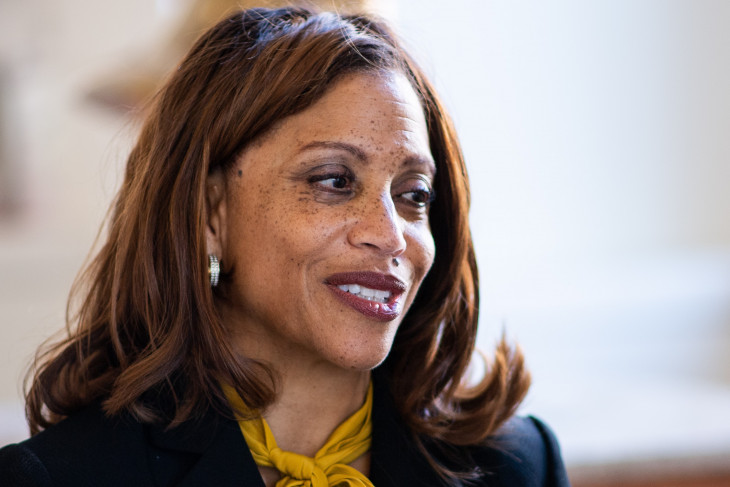
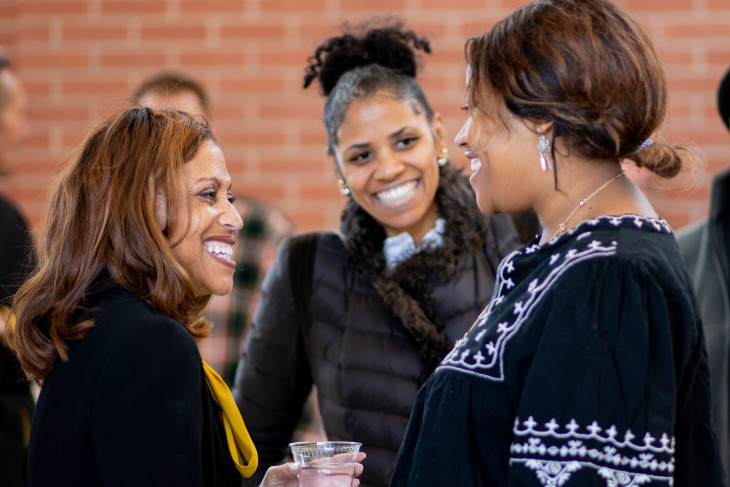
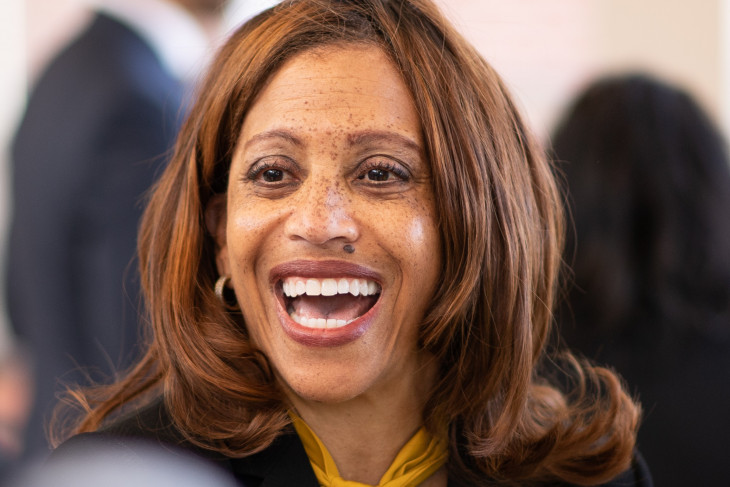
“They could not have been more welcoming and understanding,” said Candace Hayes, now a rising senior at WashU and founder of Title Mine. “They, from the beginning and since, treated us as peers and colleagues who were working with them to make a safer and more inclusive campus learning environment, not as though we were existing in a clear hierarchical structure with an imbalance of power dynamics. They wanted to make us feel comfortable with voicing our concerns and voicing our opinions. … Fortunately, over the course of the past two years, we’ve been able to build deep interpersonal relationships with the administrators whom we’ve been working with and have been able also to build trust.”
Over that summer, White’s team evaluated the students’ demands – which she prefers to call “requests” – and agreed to most of them. “’Demand’ implies an adversarial relationship between students and administrators,” she said. “I really believe that mostly, when students ask us for things, they’re asking us for things that are not unreasonable. And if there is a way for us to work with students to get to ‘yes,’ I think that’s where we should focus.”
WashU ultimately added six full-time positions and committed to speedier investigations, longer counseling hours, timely accommodations, more staff training and other steps.
Throughout her career, White has worked on issues of diversity, equity and inclusion, beginning with her first professional job almost 40 years ago as the director of the Cross Cultural Center at the University of California, Irvine. “These are issues that all of us are struggling with in higher education across the country and, really, we’re struggling with as a nation and as a world,” she said. “So I don’t think one person can come in with her Super Woman cape and solve all of that. … I hope that I can be a role model for talking about how important this is at DePauw and that students will see me as somebody who feels personally and professionally really committed to these really important issues.”
She may not wear a Super Woman cape, but a former colleague expects White will make a significant difference at DePauw. She is “one of the most visionary leaders I have ever worked alongside,” said Robert Wild, WashU’s associate vice chancellor for student transition and engagement and dean of students. “She nurtured and recruited a strong, diverse and student-centered team of leaders. More than anyone I have ever worked for, Dr. White sees potential in people.”
She also “cares deeply about students,” Wild said. “She gets to know students on an individual level and is always seeking out those who many not have a voice at the table to understand their experience.”
A few facts about Lori White:
-
She is “the eternal optimist"
“I’ve always believed tomorrow’s going to be better than today and that there’s no challenge that is insurmountable.”
-
She’s the oldest of three daughters
White was born to Myrtle Escort White, a nurse, and the late Joseph L. White, who taught psychology at the University of California, Irvine. Her parents divorced when White was 8, so her mother raised the girls as a single, working mother, inspiring them to “believe that we can achieve whatever it is that we imagine.” Her father taught her that “part of our role as educators is to invest in the next generation and to use, hopefully, our gifts and our talents to really move that next generation forward.”
-
She’s a morning person
“I get up at 4 in the morning. The other thing about me is I’m a routine person. Monday, Wednesday, Friday, I have the same thing for breakfast (avocado toast and a scrambled egg, plus a smoothie). Tuesday, Thursday, I have the same thing for breakfast (peanut butter and toast and oatmeal, plus a smoothie). I like the morning because it’s quiet; nobody else is up. It gives me time to peacefully ease into the morning.”
-
She is disciplined
“No coffee. No tea. No caffeine. I just drink water mostly.”
-
She’s diminutive
“In my mind, I’m six-foot-two. But yes, I am short. It’s funny. When people who have never met me before meet me for the first time, they do remark on my stature because they are, I think, surprised. But people who know me always tell me that I show up much bigger than my stature. … And you know, I’m bossy and assertive.” (Said Kathy Lewis, her executive assistant at WashU: “She is tiny, but very mighty. … She is not bossy. She is a great delegator, though.”)
-
She’s an extrovert
“Every now and then I want to curl up with a good book and turn off the phone, but mostly I’m an extrovert.”
-
She is an avid reader
White especially likes historical fiction and biographies. “I’m really fascinated by leadership, by presidential leadership in particular,” she said, and thus is a fan of the four-volume (soon to be five) Robert Caro biography of Lyndon B. Johnson.
-
She loves college sports
“I love the pomp and circumstances. I love the fans. I love the cheerleaders. I love the competition – all of that,” she said. She was a high school cheerleader and she has coached college-level cheerleading. She also inadvertently memorized all the mascots of Division I teams, “probably from osmosis of watching so many college football and basketball games over the years.” She promises to commit Division III mascots to memory soon.
-
She sings
White sings in the shower and in the car to relieve stress and “on campus, if I’m going to speak, it’s likely that in some way, shape or form, in the midst of my speech, I’m going to break into some kind of song.” She started a student affairs choir at WashU and said she’ll do the same at DePauw “if there are singers – which I know there are at DePauw, given our music school – who want to sing for fun.”
-
She loves her red BMW sports car
It's a “two-seater hard top. It’s snazzy. It’s cool.” And she loves her pink tennis shoes, which have made “a huge difference in my ability to connect to students, and then they recognize me.” She said she wonders if she should swap them out for gold.
-
Her pet peeve is negativity
“We all have down days and bad days, and I get that. And that’s fine,” she said. “But then I want us to refocus and think about how do we move forward. So pet peeves are when somebody comes in and lays a problem at my feet and then walks out the door. I don’t mind you coming in and saying to me, ‘Lori, this is wrong; I’m frustrated about this.’ Not a problem. Then I want you to say, ‘and here’s my solution for what I think we ought to do to fix it.’”
For just such encounters, she keeps on hand a “magic” wand – a bedraggled and bejeweled feathery thingamajig – that she uses to tap the complainant on the shoulder and say, “Guess what? You are now in charge of this. Go forth. Make the best decision that I know that you know how to do.”
-
She recognizes the historical significance of her appointment
“Somebody told me there’s already a Wikipedia on me,” she said. “I went to it and that’s exactly what it starts with. And, you know, forevermore folks will describe me, whenever they talk about DePauw’s history, as the first female president and the first African-American president. It will be wonderful when we get to the point of time in the history of our country when we’re not still talking about the firsts. But we’re not there yet.”
-
She got the call in Meharry Hall
When White visited the DePauw campus, her tour guide took her to Meharry Hall. As she gazed at the portraits of past university presidents, “that’s when I tell people I got the call, right? Because I really felt like I heard this voice saying to me, ‘Lori, you have the opportunity to make history. You have the opportunity to be an inspiration for current students and for generations that follow you.’ How can you say ‘no’ to that?”
DePauw Magazine
Summer 2020
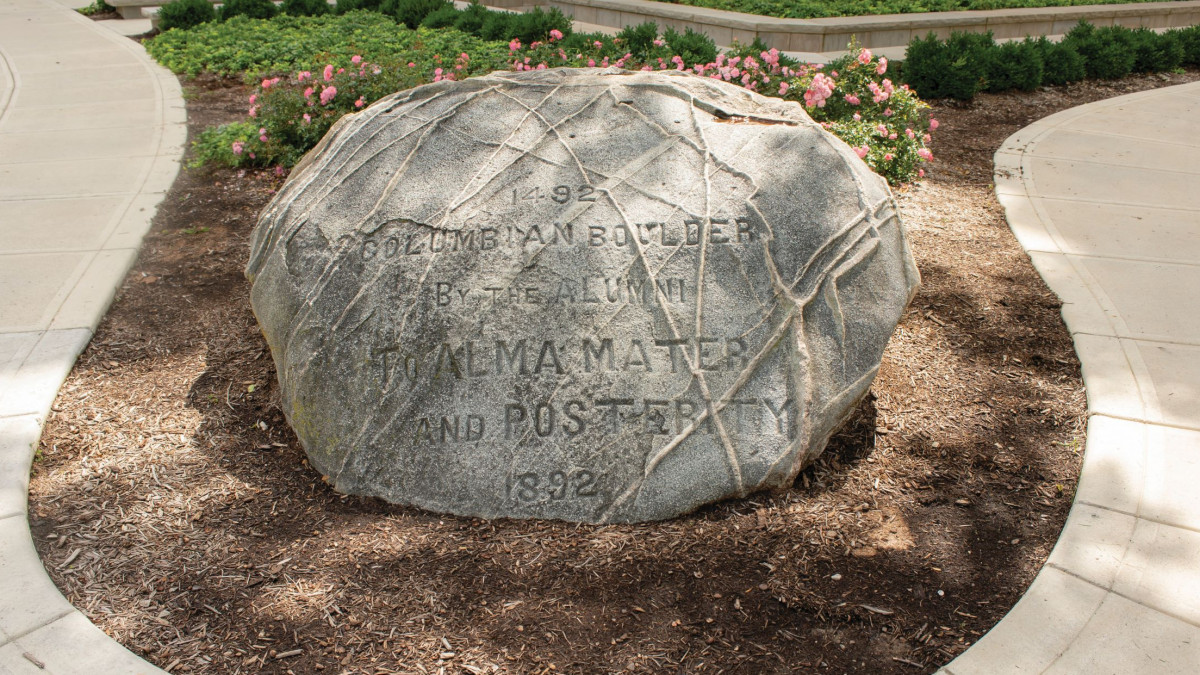 The Bo(u)lder Question
The Bo(u)lder Question 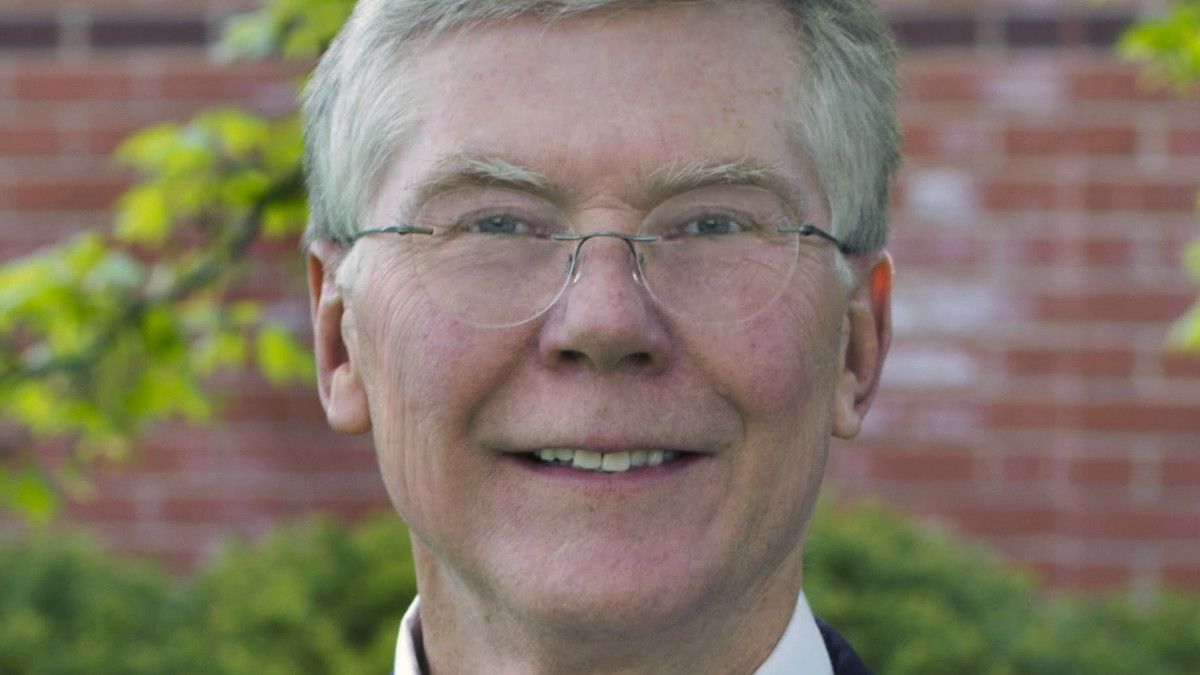 Retired archivist reflects on 36 years as DePauw’s memory keeper
Retired archivist reflects on 36 years as DePauw’s memory keeper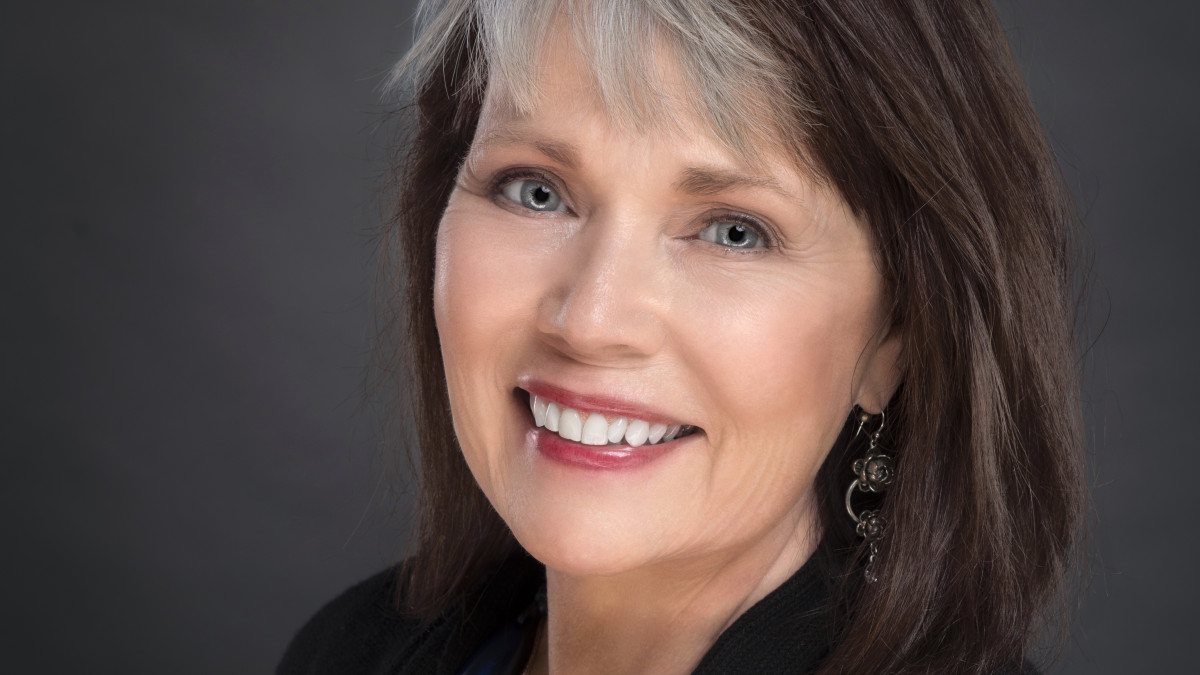 First Person by Connie Campbell Berry '67
First Person by Connie Campbell Berry '67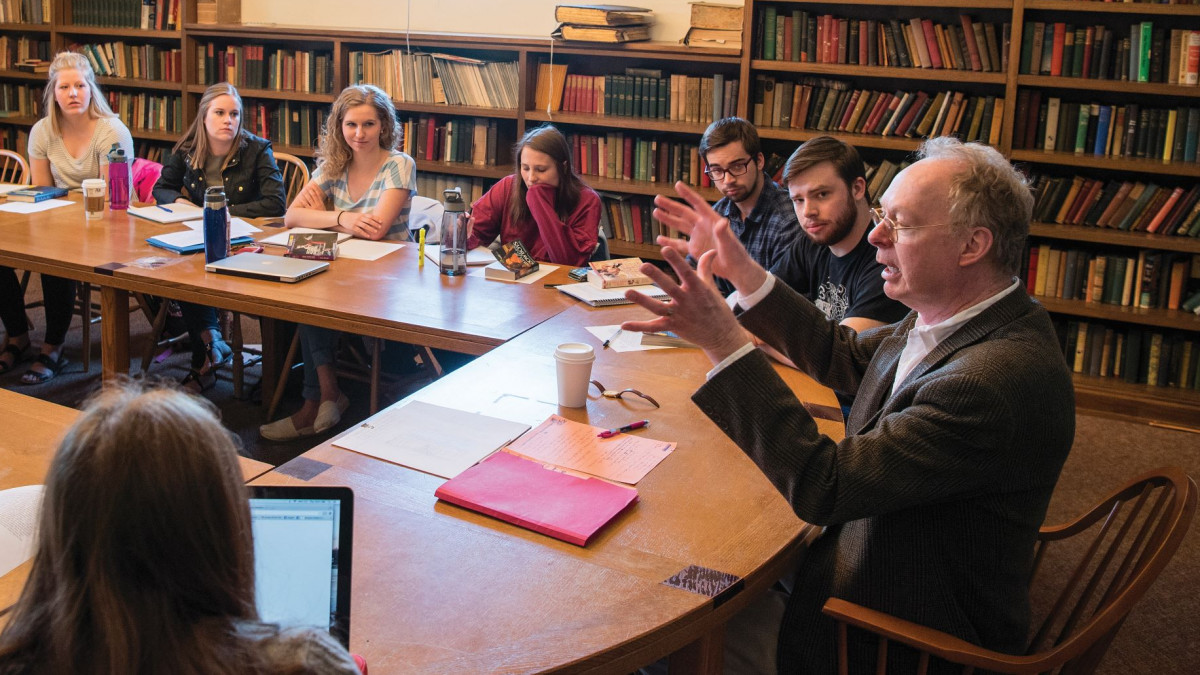 First Person by Wayne Glausser
First Person by Wayne Glausser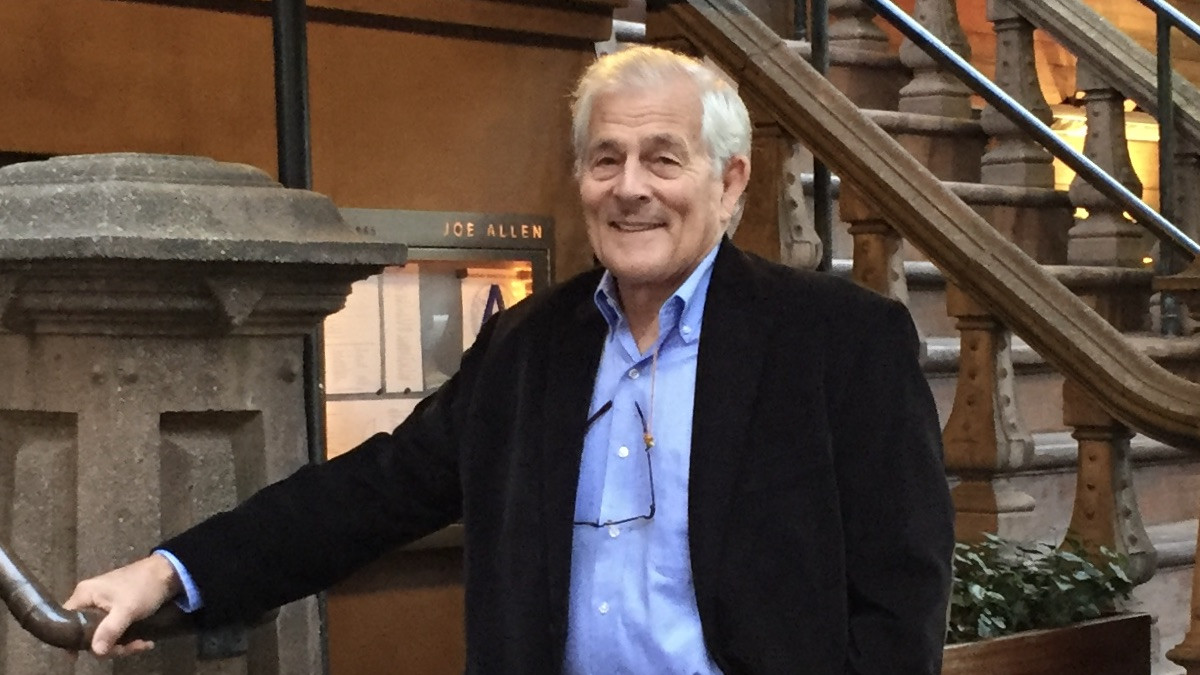 Battling an epidemic, treating individuals: Physician alum has done it all
Battling an epidemic, treating individuals: Physician alum has done it all 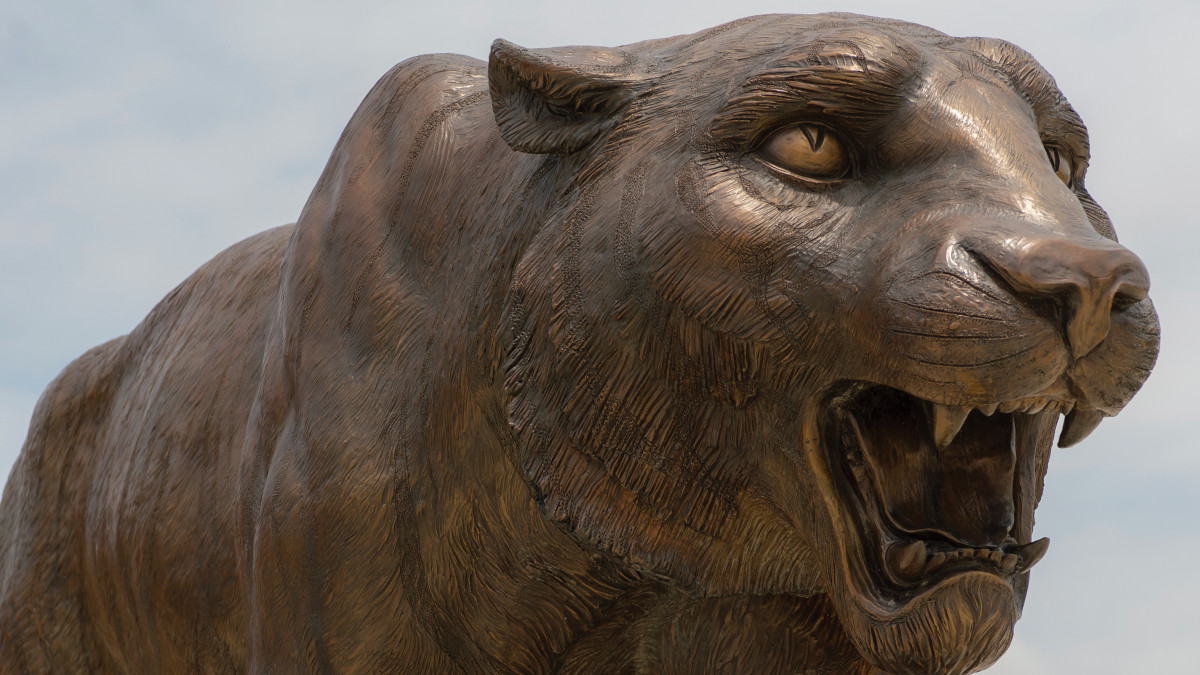 Welcome, Class of 2024!
Welcome, Class of 2024!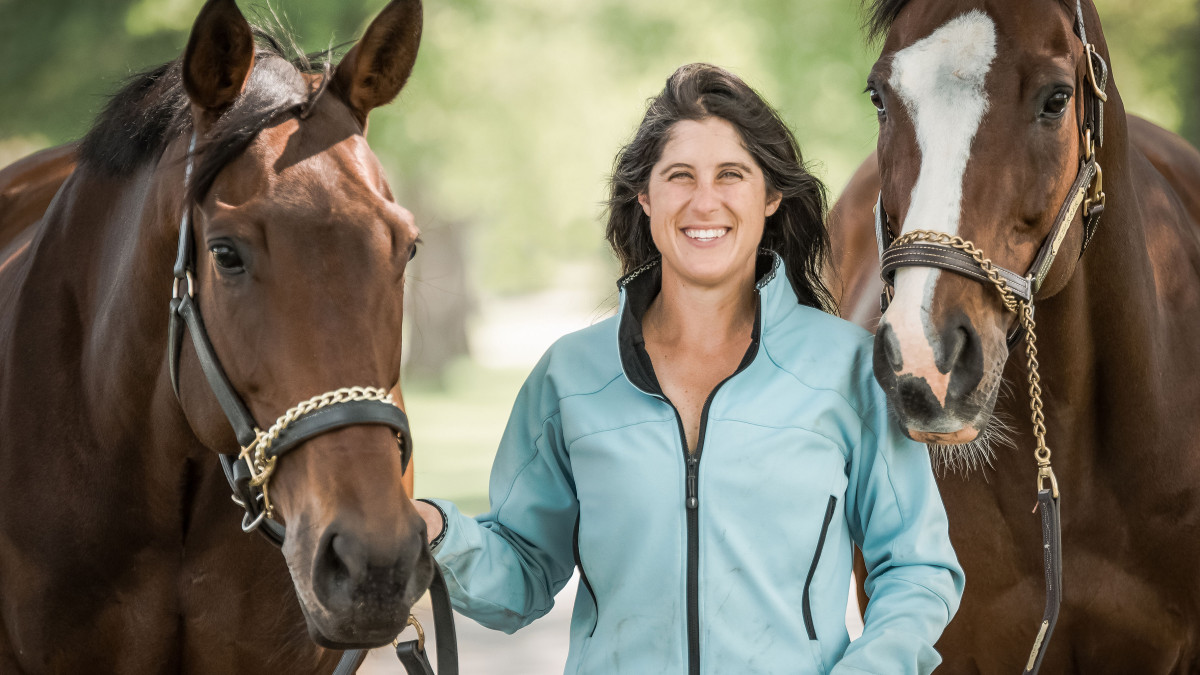 She has loved them since she was 6: vet cares for, competes with and rescues horses
She has loved them since she was 6: vet cares for, competes with and rescues horses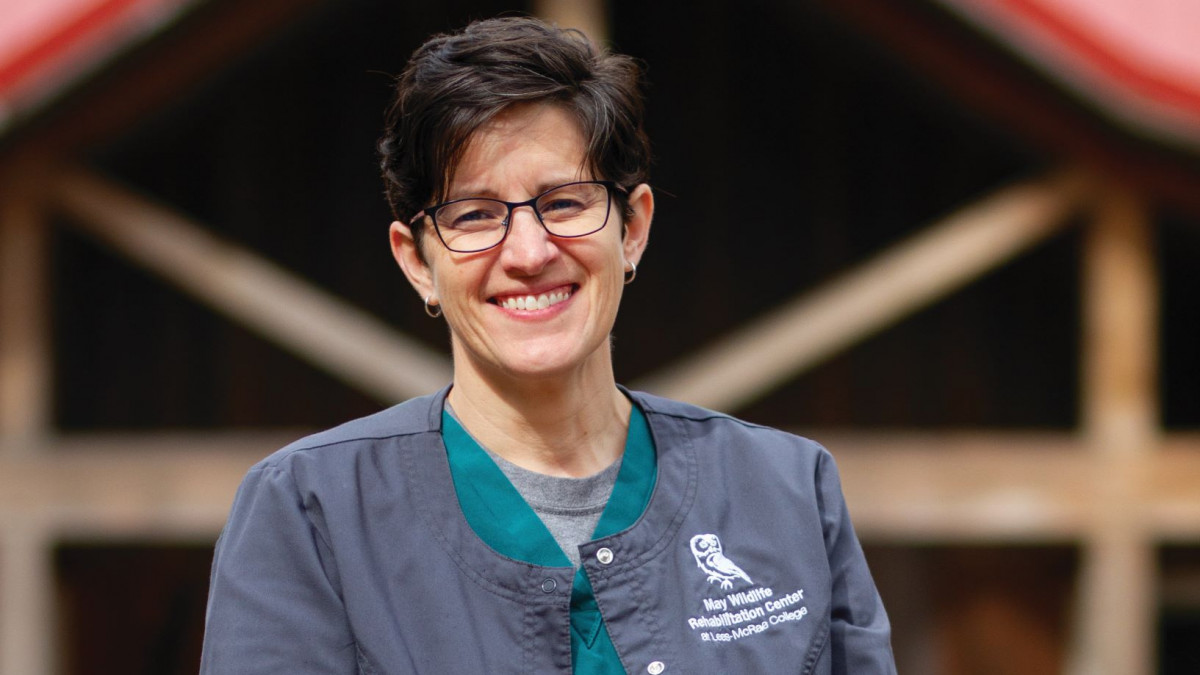 Liberal arts taught wildlife vet to consider different approaches to patients’ problems
Liberal arts taught wildlife vet to consider different approaches to patients’ problems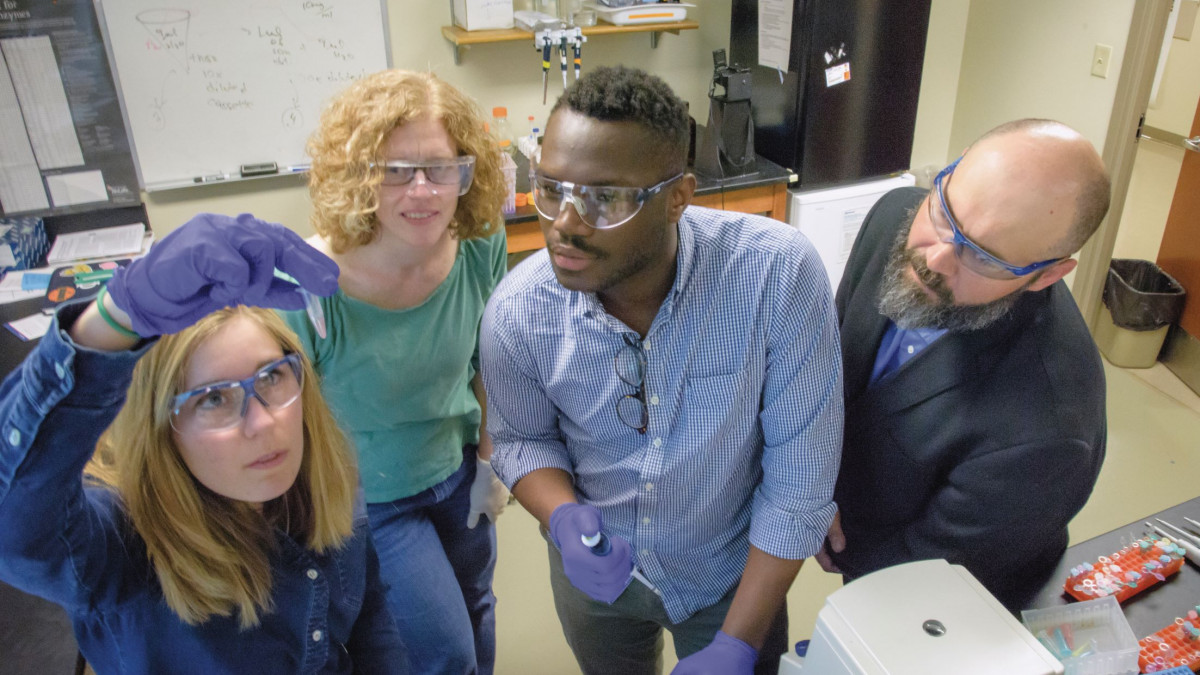 Scientist and humanitarian: Prof embodies disparate interests, then acts on and teaches them
Scientist and humanitarian: Prof embodies disparate interests, then acts on and teaches them Researcher follows the science toward treatments
Researcher follows the science toward treatments The ‘dura mater’ handles medical training and motherhood with aplomb
The ‘dura mater’ handles medical training and motherhood with aplomb 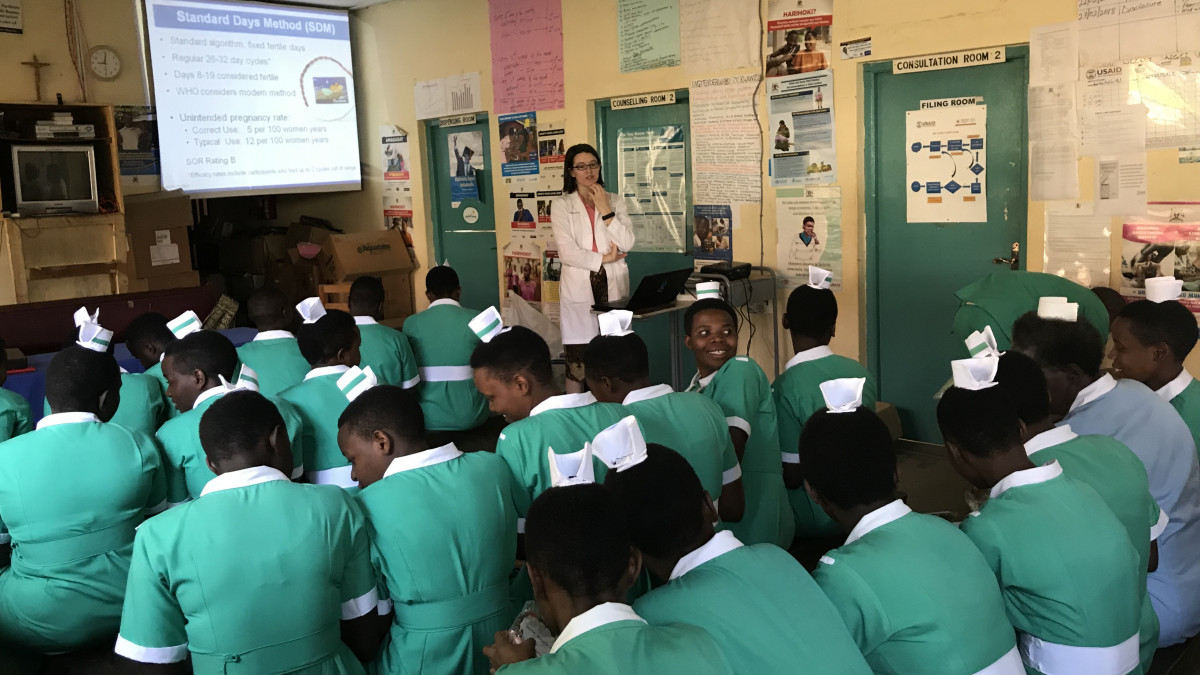 Evolving interests drive ’12 grad to trade test tubes for a stethoscope
Evolving interests drive ’12 grad to trade test tubes for a stethoscope Alum hopes to meet global needs by establishing med school
Alum hopes to meet global needs by establishing med school The healers
The healers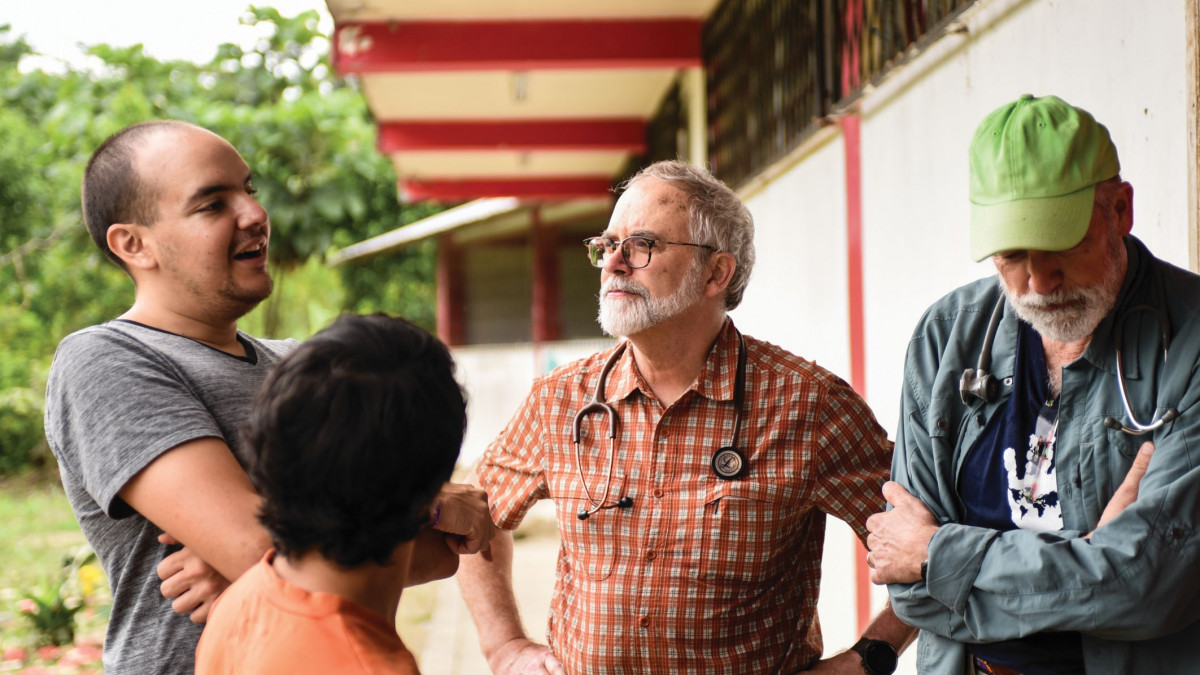 Personal experiences prepared ’76 alum for work, service
Personal experiences prepared ’76 alum for work, service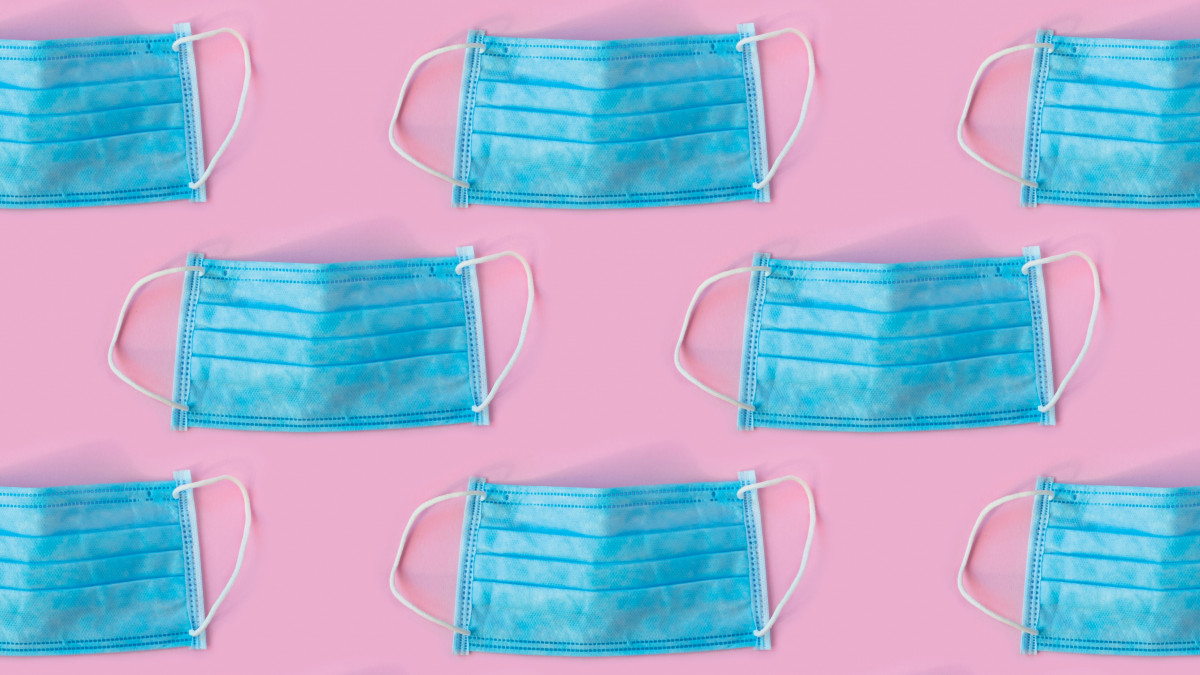 DePauw in the time of COVID-19
DePauw in the time of COVID-19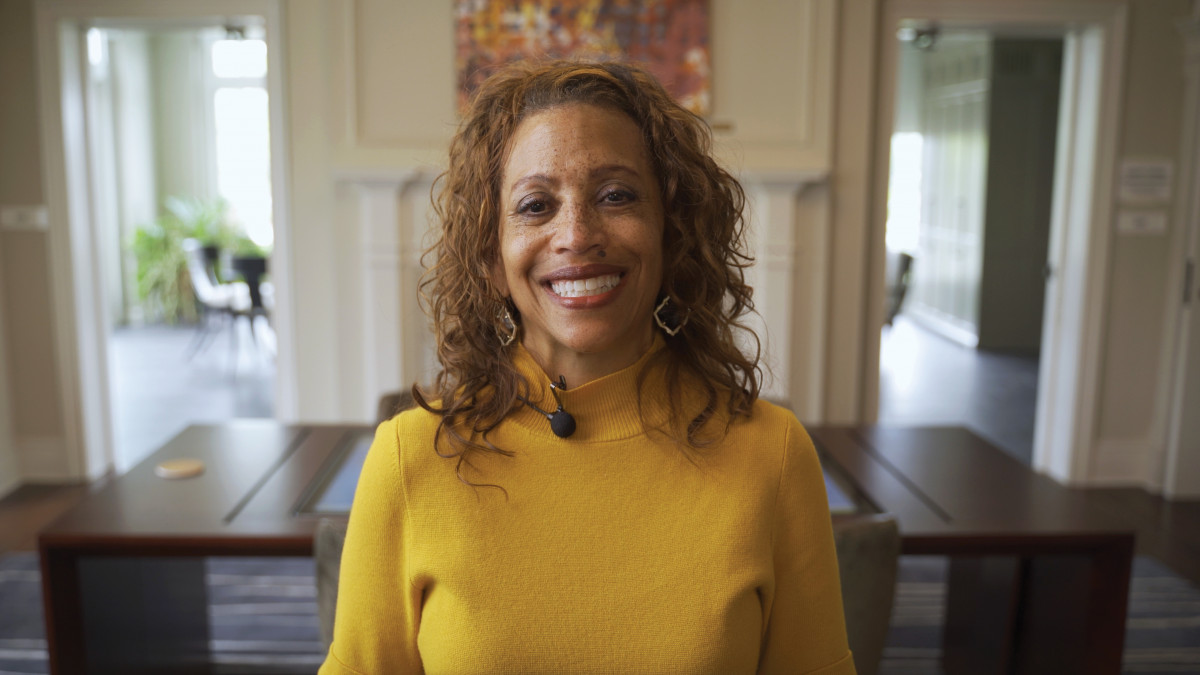 DePauw’s new president: A ‘visionary,’ empathetic and focused optimist ... who sings
DePauw’s new president: A ‘visionary,’ empathetic and focused optimist ... who sings
DePauw Stories
A GATHERING PLACE FOR STORYTELLING ABOUT DEPAUW UNIVERSITY
Browse other stories
-
Athletics
-
Football - DePauw-Record 190 Student-Athletes Named to NCAC's Dr. Gordon Collins Scholar-Athlete Honor Roll
-
Football - 336 Students Named to 2025 Spring Tiger Pride Honor Roll
-
Football - DePauw Unveils 2025 Athletics Hall of Fame Class
More Athletics
-
-
News
-
Outstanding scholars named to Spring 2025 Dean's List
-
Alumni News Roundup - June 6, 2025
-
Transition and Transformation: Inside the First-Year Experience
More News
-
-
People & Profiles
-
11 alums make list of influential Hoosiers
-
DePauw welcomes Dr. Manal Shalaby as Fulbright Scholar-in-Residence
-
DePauw Names New Vice President for Communications and Strategy and Chief of Staff
More People & Profiles
-
-
Have a story idea?
Whether we are writing about the intellectual challenge of our classrooms, a campus life that builds leadership, incredible faculty achievements or the seemingly endless stories of alumni success, we think DePauw has some fun stories to tell.
-
Communications & Marketing
101 E. Seminary St.
Greencastle, IN, 46135-0037
communicate@depauw.eduNews and Media
-
News media: For help with a story, contact:
Bob Weaver, Senior Director of Communications.
bobweaver@depauw.edu.